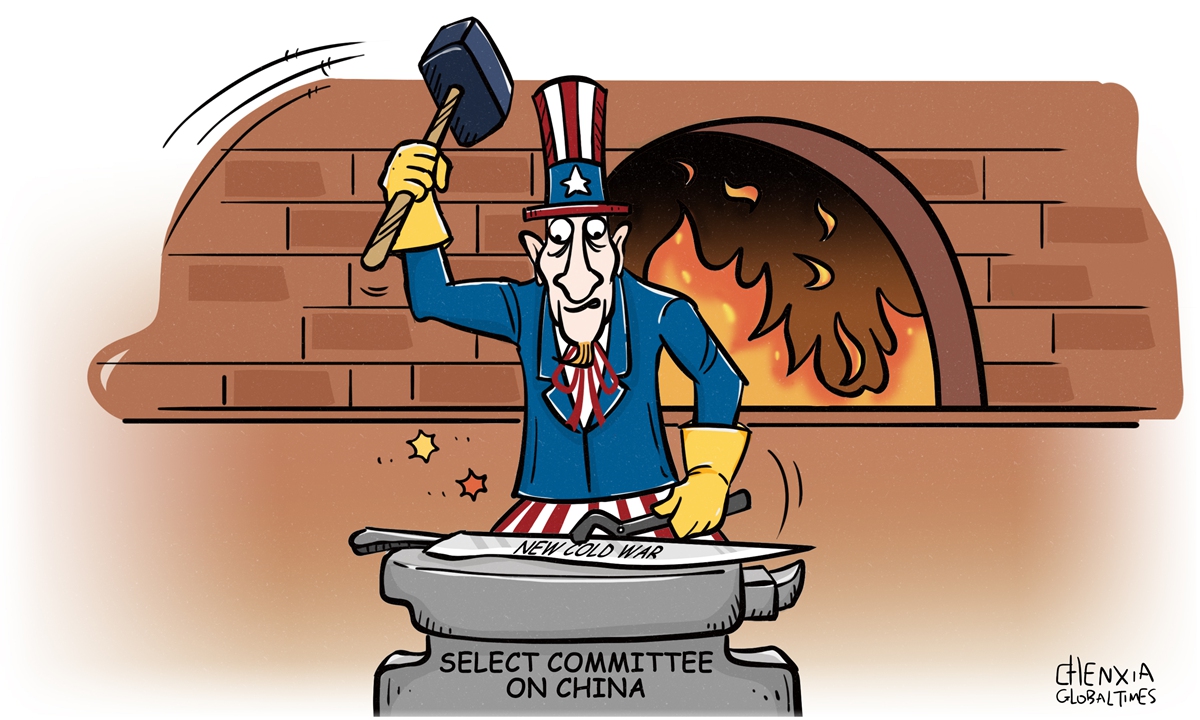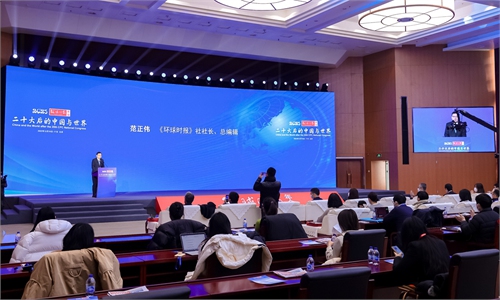
Illustration: Chen Xia/GT
Kevin McCarthy, the Republican leader in the US House of Representatives, announced earlier this month that he would create a Select Committee on China if he is elected speaker when Republicans take control of the House in January. And Republican US Representative Mike Gallagher, a longtime China hawk, was named to lead this proposed committee. Gallagher said he planned to focus scrutiny on US investments in China, Bloomberg reported on Tuesday. It is obvious the new US congressional tool against China will have an adverse effect on China-US ties.On December 8, McCarthy and Gallagher published an op-ed on Fox News, stating that "China and the US are locked in a cold war. We must win it."
There are at least three motivations that could explain the Republican Party's eagerness to establish the Select Committee on China. To begin with, the GOP wants to mobilize the US to promote a comprehensive containment strategy against China via, recalling the memories of the Cold War. In addition, Republicans like McCarthy and Gallagher are attempting to put Donald Trump's anti-China political agendas back on the table and to influence Joe Biden's China policy.
Moreover, with the new mechanism, the GOP could create more stumbling blocks for China-US ties during Biden's presidency in the coming two years. The new committee could, to a large extent, play a role of a troublemaker. By frequently attacking China, promoting China-related legislation, it could take Biden administration's China policy under solid control.
After Republicans won a majority in the House during the 2022 midterm elections, McCarthy has been chasing votes to be elected House Speaker. Given this proposed Republican tool - the Select Committee on China - future China-US ties will face three risks.
First, the US new cold war mechanism towards China could be finalized. After the September 11 attacks, anti-terrorism has been the priority in US national security mechanism. Changes started to occur after Trump released his National Security Strategy in 2017, which labeled China as a strategic competitor. And containment of China has been pursued ever since. China-related working mechanisms were later set up in different departments of the US government. If the Select Committee on China is established, it would signal the creation of a grand anti-China mechanism shared by both the White House and the Congress. And the priority of the US national security mechanism will change from anti-terrorism to major power competition. China and the US may become locked in a long-term new cold war.
Second, the hard-line policies toward China from both Democratic and Republican parties may "converge." The wounds on China-US ties, created by the Trump administration have not yet healed, but in fact worsened, with the Biden administration's policies causing new injuries to the relationship. The next US presidential election is not far away. If the two parties continue their competition on who could be tougher against China in order to fight for votes in the coming election, it will objectively promote the convergence of the two parties' anti-China policies, bringing a new adverse impact on China-US ties.
Third, a struggle would occur between US Congress' troublemaking and China-US intergovernmental cooperation. Given the separation of powers in the US political system, Republicans' control of the House will bring the Biden administration some headaches to promote its policies. After the Select Committee on China is established, Republicans will attack China more frequently, which will cause constraints for the Biden administration to show a positive attitude toward China, or to promote dialogue and cooperation with China. China-US ties could then become a "victim" or a "trading good" for the two parties, thanks to their political infighting. How to deal with future China-US relations will be a common test for both countries.
The author is Assistant Research Fellow of the Institute of American Studies, China Institutes of Contemporary International Relations. opinion@globaltimes.com.cn

